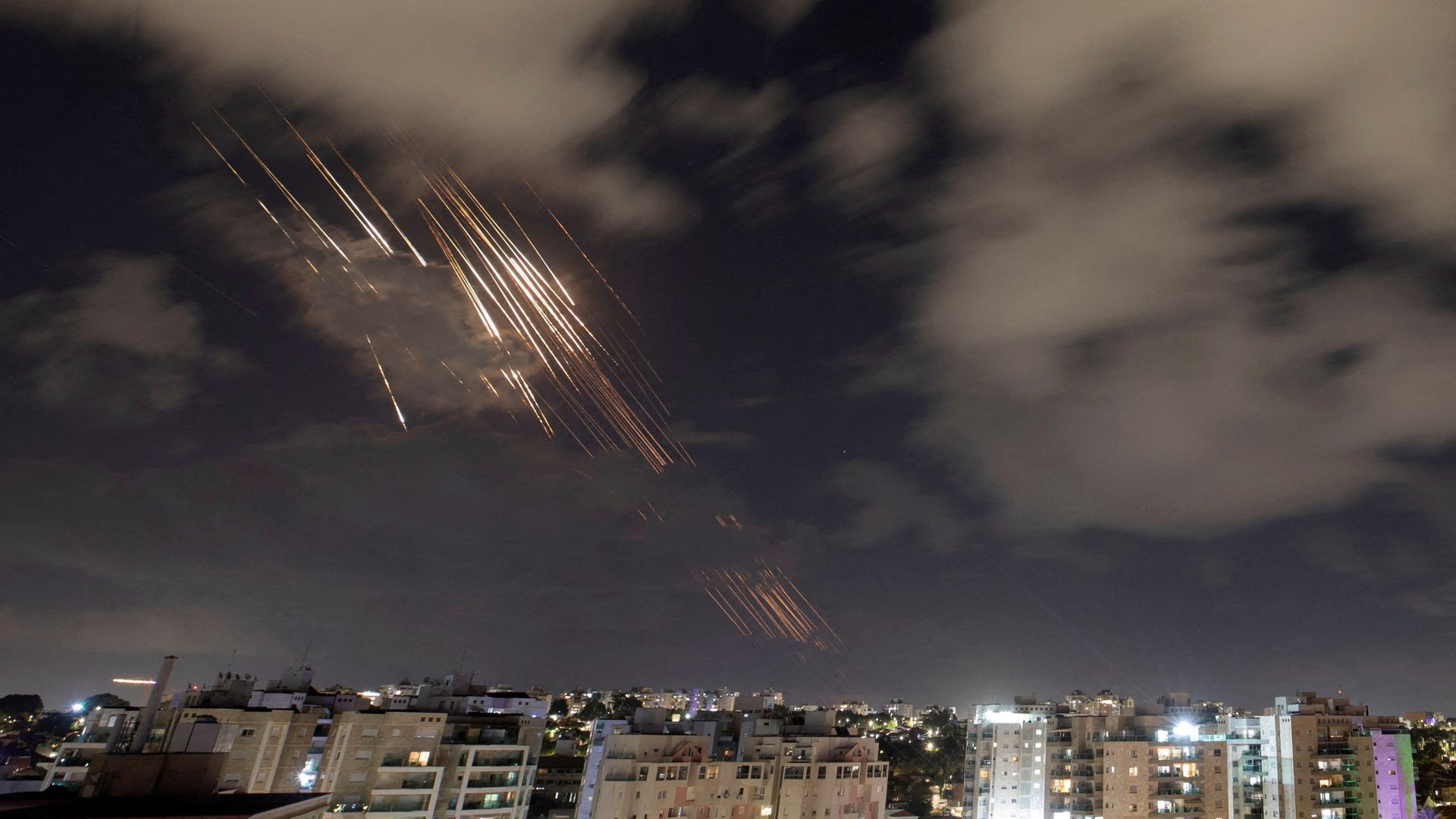Iranian state media claimed the country used its new ballistic Fattah missile in its attack on Israel on Tuesday night.
There is some doubt, however.
Defence and security analyst Professor Michael Clarke said: “If [Iran was] using it, I think they would have used more of it, and if they’ve used it twice [in Tuesday’s attack and in April] and it has failed both times, then it is not as good as they say it is.”
Last year, Iranian officials claimed the Fattah, which means “conqueror” in Farsi, travelled at 15 times the speed of sound and had a range of 870 miles.
However, Dr Sidharth Kaushal, senior research fellow at defence and security think tank RUSI, told Sky News the missile’s strength lies in a motor that makes it faster and more manoeuvrable after it has been launched.
Please use Chrome browser for a more accessible video player
He described a missile without a motor like Fattah’s as moving like a “cricket ball thrown underarm” – with a trajectory that is easy to calculate.
Adding in the motor makes that calculation tougher, as it can make the missile change trajectory.
Children’s toys in rubble of deadly apartment block strike in Lebanon
Israel sends more troops into Lebanon after Iranian missile attack
Middle East conflict: Why oil prices are not surging ahead
“In a context like ballistic missile defence, where seconds are critical, even a little bit of additional time in calculating a missile trajectory can be the difference between success and failure,” said Dr Kaushal.
Please use Chrome browser for a more accessible video player
Videos of Tuesday’s attack appeared to show missile re-entry vehicles, which carry their warheads, reaching the ground.
Some were intercepted, including several above the earth’s atmosphere.
The Pentagon said that two US Navy destroyers fired about a dozen interceptors against the Iranian ballistic missiles.
Iran said around 90% of the missiles hit their targets.
Live updates: IDF sends extra troops into Lebanon
Missile experts who analysed footage of remains of missiles recovered after the attack suggested the Fattah had been used, according to the Associated Press.
Please use Chrome browser for a more accessible video player
Iran is armed with the largest number of ballistic missiles in the region, according to US intelligence.
Read more:
Israel promises ‘severe response’ to Iran attack
Middle East could be on the verge of a ballistic missile war
Iron Dome is just one part of multi-layered air defence system
Fabian Hinz, an expert on Iran’s missile arsenal at the International Institute for Strategic Studies, said Iran seems to have fired a combination of solid- and liquid-fuelled missiles.
He based that on the locations of videos of launches posted on social media and the ranges to Israel.
Keep up with all the latest news from the UK and around the world by following Sky News
The more advanced solid-fuelled missiles are fired from angled mobile launchers and the latter from vertical launchers, he said, and believes the Fattah could be one of the solid-fuelled missiles fired on Tuesday.
Be the first to get Breaking News
Install the Sky News app for free
RUSI’s Dr Kaushal also believes the Fattah was launched, although he said Iran’s claim the missile was behind the attack on Israeli air defence batteries was “implausible”.





